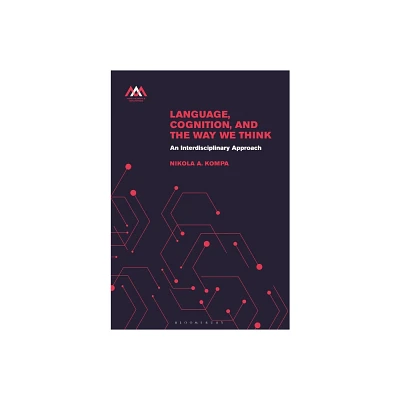Home
Medieval Allegory as Epistemology: Dream-Vision Poetry on Language, Cognition, and Experience
Loading Inventory...
Barnes and Noble
Medieval Allegory as Epistemology: Dream-Vision Poetry on Language, Cognition, and Experience
Current price: $155.00


Barnes and Noble
Medieval Allegory as Epistemology: Dream-Vision Poetry on Language, Cognition, and Experience
Current price: $155.00
Loading Inventory...
Size: Hardcover
*Product Information may vary - to confirm product availability, pricing, and additional information please contact Barnes and Noble
In
Medieval Allegory as Epistemology
, Marco Nievergelt argues that late medieval dream-poetry was able to use the tools of allegorical fiction to explore a set of complex philosophical questions regarding the nature of human knowledge. The focus is on three of the most widely read and influential poems of the later Middle Ages: Jean de Meun's
Roman de la Rose
; the
Pélerinages
trilogy of Guillaume de Deguileville; and William Langland's vision of
Piers Plowman
in its various versions. All three poets grapple with a collection of shared, closely related epistemological problems that emerged in Western Europe during the thirteenth century, in the wake of the reception of the complete body of Aristotle's works on logic and the natural sciences. This study therefore not only examines the intertextual and literary-historical relations linking the work of the three poets, but takes their shared interest in cognition and epistemology as a starting point to assess their wider cultural and intellectual significance in the context of broader developments in late medieval philosophy of mind, knowledge, and language. Vernacular literature more broadly played an extremely important role in lending an enlarged cultural resonance to philosophical ideas developed by scholastic thinkers, but it is also shown that allegorical narrative could prompt philosophical speculation on its own terms, deliberately interrogating the dominance and authority of scholastic discourses and institutions by using first-person fictional narrative as a tool for intellectual speculation.
Medieval Allegory as Epistemology
, Marco Nievergelt argues that late medieval dream-poetry was able to use the tools of allegorical fiction to explore a set of complex philosophical questions regarding the nature of human knowledge. The focus is on three of the most widely read and influential poems of the later Middle Ages: Jean de Meun's
Roman de la Rose
; the
Pélerinages
trilogy of Guillaume de Deguileville; and William Langland's vision of
Piers Plowman
in its various versions. All three poets grapple with a collection of shared, closely related epistemological problems that emerged in Western Europe during the thirteenth century, in the wake of the reception of the complete body of Aristotle's works on logic and the natural sciences. This study therefore not only examines the intertextual and literary-historical relations linking the work of the three poets, but takes their shared interest in cognition and epistemology as a starting point to assess their wider cultural and intellectual significance in the context of broader developments in late medieval philosophy of mind, knowledge, and language. Vernacular literature more broadly played an extremely important role in lending an enlarged cultural resonance to philosophical ideas developed by scholastic thinkers, but it is also shown that allegorical narrative could prompt philosophical speculation on its own terms, deliberately interrogating the dominance and authority of scholastic discourses and institutions by using first-person fictional narrative as a tool for intellectual speculation.


















